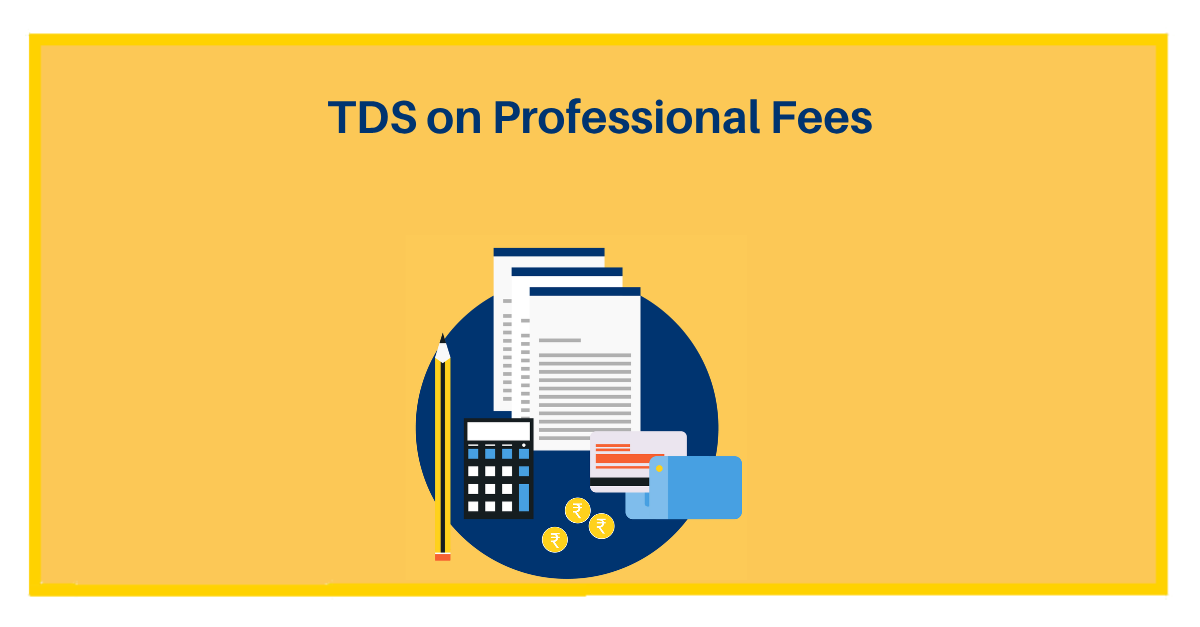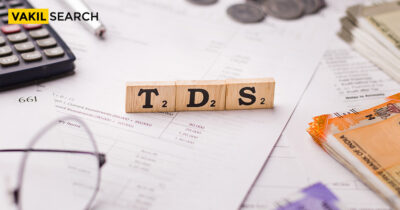We start by understanding Section 194J of The Income Tax Act 1961. We add the Meaning of Professional Services Under Section 194J, then discuss the Amendments in TDS Section 194J. Then we discuss who is Liable to Deduct TDS Under Section 194J. Then we discuss the Rate of TDS Deduction Under Section 194J. And then the time factor.
Overview:
TDS stands for ‘Tax Deducted at Source’ and is covered under section 194J of the Income Tax Act of 1961. It essentially refers to a deduction required when a person is paying fees to a resident for particular services. This deduction must be made under specific conditions and for specific services that we will explain further in this article. Continue reading to learn more about the TDS on professional fees and critical regulations regarding the same.
Section 194J
Specifically, section 194J of the Income Tax Act, 1961: https://incometaxindia.gov.in/pages/acts/income-tax-act.aspx stipulates the rules regarding tax deducted at source (TDS) on various technical and professional services fees. As part of the advance tax deduction, TDS is deducted at the applicable rate before the payment for any professional or technical service is completed.
Amendments To Section 194J
Section 194J of the TDS has been amended as part of the Finance Bill 2020. These include:
- Regarding fees for technical services (which are not considered professional services), tax will be deducted at the rate of 2%. In all other cases, the rate will be up to 10%.
- An individual or HUF whose revenue, gross receipts, or turnover from the business or profession carried out by him exceeds one crore rupees in the case of the business or fifty lakh rupees in the case of the profession during the fiscal year immediately preceding the one that interest is credited or paid, must deduct TDS.
What is Required to Deduct TDS?
TDS applies in the following scenarios:
- Professional service fees
- Fees for technical services
- Remuneration is paid to directors that do not come under ‘salary.’
- Royalty
- Payments in the form of non-compete fees or fees paid to not share any technical expertise.
What are ‘Professional’ and ‘Technical’ Services?
Professional services under Section 194J imply any service in the following fields:
- Medical
- Legal
- Engineering
- Architectural profession
- Accountancy
- Technical consultancy, or
- Interior decoration
Professional Services mentioned in Section 44AA:
- Film artist
- Authorised representative
- Company Secretary
Professional Services related to Sports Activities:
- Anchors
- Commentators
- Event managers
- Physiotherapists
- Referees and umpires
- Sports persons
- Sports columnists
- Trainers and coaches
Technical Services under Section 194J:
- Technical services: Providing services that involve technical expertise or expertise in technology.
- Managerial services: Running and management of the business of the client
- Consultancy Services: advisory services wherein necessary advice and consultation are given to the clients for their business
- Providing technical or other manpower services
Is There a Limit to TDS on Professional Fees?
A maximum limit of ₹30,000 applies to each item or payment separately. This section also applies to commissions or remuneration or fees paid to the director of a company, even if the amount does not form part of the salary.
How is the Rate of TDS Calculated?
Under Section 194J, all payments are subject to the following taxes:
- If the payee (professional/technical services provider) provides a Permanent Account Number (PAN), a flat rate of 10% will be applied to the transaction amount.
- There is a flat rate of 20% on the transaction amount if the payee does not provide the PAN (Permanent Account Number)
- In the case of call centres, the TDS rate is lower, equal to 2% of the transaction value.
In Which Situations Is TDS Not Applicable?
TDS does not apply in the following scenarios:
- Individuals or HUFs who make payments exclusively for personal use are not required to deduct tax. The individual can apply to assess officers for no TDS or TDS at a lower rate under Section 197.
- No tax is required to be deducted where the amount of such sum or the aggregate of the amounts of such sums during the financial year does not exceed ₹30,000
Special Cases
- Maintenance Contracts: Payments made for routine maintenance contracts (including the supply of spare parts) are subject to TDS based on 194C. Section 194J will become applicable if such payments are made in exchange for providing any technical services.
- Recruitment Agencies: Payments made to recruitment agencies (like Monster India or Naukri.com, etc.) will be subject to the TDS outlined in section 194J.
- On GST: TDS is applicable only if the value of GST is separately stated on the bill under this section (excluding GST).
- Media House: Media houses that pay commissions to advertising agencies are liable for TDS under section 194J.
When Must You Deposit and File TDS?
The following are the deadlines for depositing TDS with the government :
| Period | Time limit to deposit TDS |
| Paid in the month of March | On/before 30th April |
| Paid in a month other than March | Deductions are made within 7 days of the end of the month |
Filing TDS Returns FY 2023-24
TDS must be deposited with the government and a quarterly TDS return on form 26Q must be made.
| Period | Due Date |
| April – June | 31st July |
| July – September | 31st October |
| October-December | 31st January |
| January – March | 31st May |
What are the Penalties for Non-compliance?
Section 194J of the Income Tax Act of 1961 outlines several penalties that can be imposed if a person or business receiving services forgets to deduct TDS or makes late TDS payments to the government. Some of the punishments that may be imposed are as follows:
- Reduced Tax Benefit instead of Expenditure
If an individual or company fails to deduct TDS, 30 percent of their expenditure for the services obtained will be disallowed for the corresponding financial year. In practice, a tax assessor can only claim the full tax benefits of expenses after deducting and paying TDS to the government on time.
- Interest Until Payment Date
In the event of late payment, the entity or individual must pay the following penalty interest on the due TDS amount:
- If TDS is not deducted, the interest of 1% per month or a fraction of a month is charged from the date on which was to be deducted until the date of actual deduction.
- TDS Deducted but Not Deposited to the Government: From the date, TDS was deducted until the payment to the government, interest is payable at 1.5 per cent each month or part of a month.
Conclusion:
We hope this article explaining the concepts related to TDS on professional fees educates you well. However, we understand that legal topics like this can be quite confusing. Vakilsearch is a technology-driven platform offering services that cover the legal needs of businesses, right from small startups to large corporations. Our mission is to provide quick services to individuals and businesses for any legal and professional requirements.











